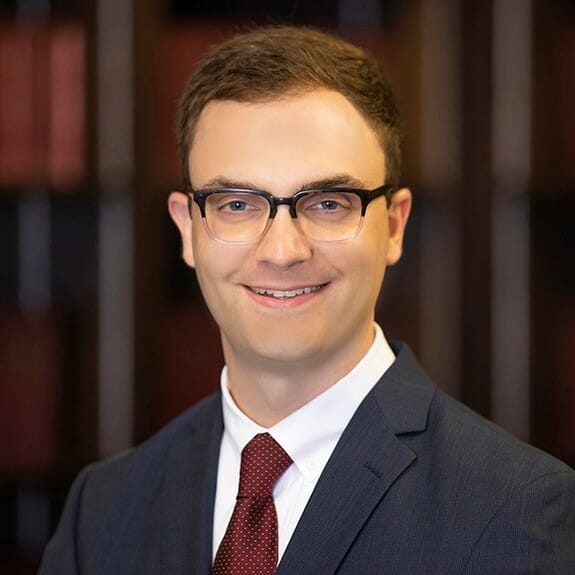“From day one, we have been steadfast that the joint ventures were not securities and, thus, no securities laws were violated. By finally dismissing the Commissioner’s lawsuit, the Court substantiated our position all along,” stated Brandon Davis, President of HEDC. “We thank Shain Khoshbin and his team at Munck Wilson Mandala LLP for parachuting into the case, changing its direction, and ultimately vindicating the Defendants’ earnest position in the matter.”
THE SITUATION FACING THE CLIENTS
In 2009, the Securities Commissioner for the State of Colorado filed suit against HEI and its President Reed Cagle, HEDC and its President Brandon Davis, and employees John Schiffner and James Pollack, for violations of Colorado’s securities laws.
After a seven-day trial in 2013, the District Court entered judgment that the oil and gas general partnership/joint venture interests at issue in the Commissioner’s lawsuit were not securities under Colorado law. The Commissioner appealed. The Court of Appeals vacated the judgment and remanded to the District Court to redetermine whether the interests were securities. The Colorado Supreme Court denied cert review of that decision.
Given the Court of Appeals’ decision, the District Court reversed course on remand, concluding that the joint venture interests were securities under Colorado law. After another 7-day trial in 2017, the District Court entered judgment finding Defendants liable for securities violations. Recognizing that the Commissioner was seeking approximately $70,000,000.00, the District Court deferred ruling on a restitution amount until after another hearing on the issue.
THE “WHIPLASH EFFECT”
The Restitution Proceeding
Jeff Thomas with Thomas Law LLC was representing HEI and Mr. Cagle. Otto Hilbert with Otto Law was representing Messrs. Schiffner and Pollack. Approximately 30 days before the third proceeding on restitution in 2018, Shain Khoshbin with Munck Wilson Mandala LLC was hired as lead counsel for HEDC and its President in a case that—at that point—had been litigated for almost a decade, involving 1300+ exhibits, thousands of pages of trial transcripts, and voluminous briefing and other filings.
Khoshbin parachuted into the case with MWM attorneys Wallace Dunwoody and Chase Cobern in court, as well as other supporting attorneys (including Aaron Dilbeck) and paralegals at the firm (including Darla Pound and Sonya Rose).
After a two-day evidentiary proceeding, the District Court cut the restitution award to a mere percentage of the eight-figure award being sought by the Securities Commissioner.
The Client’s Subsequent Appeal Results in “Whiplash Effect”
Nonetheless, the clients remained resolute in their position that there were no securities violations. Therefore, they leaned forward and appealed. In so doing, they directly challenged the Court of Appeals’ prior securities opinion in that very same case—an opinion for which the Colorado Supreme Court had already denied cert review—and the decision which led to the District Court’s holding that the general partnership/joint venture interests at issue were securities under Colorado law. Marcy Glenn, with Marcy Glenn LLC and previously Holland & Hart LLP, acted as MWM’s local counsel and actively assisted in the appeals.
After substantial briefing and oral argument before the Court of Appeals led by Khoshbin, the Court reversed and remanded the earlier decision and, in so doing, stated:
¶ 7 Accordingly, cognizant of our decision’s whiplash effect, but nevertheless convinced that the prior division’s decision is out of step with the applicable law, we reverse and remand. . . .
¶ 61 . . . We acknowledge the trial court’s commendable efforts in this case. And we acknowledge that it likely frustrates the court to be instructed to do one thing and then be told to do something else. But we have a duty to independently examine the appeal’s merits notwithstanding the prior division’s decision. . . .
Commissioner’s Appeal of the “Whiplash” Opinion to the Colorado Supreme Court
The Commissioner appealed the Court of Appeals’ decision to the Colorado Supreme Court. After substantial briefing and oral argument led by Khoshbin, the Colorado Supreme Court issued an opinion in 2022 affirming and reversing in part—thereby setting the law in Colorado as to when general partnership interests are securities—and once again remanded the case to the District Court on that issue. In sum, the Supreme Court’s opinion largely sided with Defendants’ position on the law, although it held that there was no “presumption” that the joint venture interests were not securities under Colorado law.
THE COMPLETE DEFENSE VICTORY
After substantial briefing and related filings on remand led by Shain Khoshbin, the District Court entered a 59-page Judgment on Remand dated April 17, 2025. Expressly relying on the Colorado Supreme Court’s 2022 opinion, the District Court concluded:
[T]he Court finds and concludes, by a preponderance of the evidence, that the Units of Interest in the Joint Ventures are not “securities” as contemplated by C.R.S. § 11-51-201(17). Because the Court’s findings contained herein are dispositive of all claims raised by the Commissioner against all Defendants, all of Plaintiff’s claims are hereby dismissed. This Order shall constitute a final judgment pursuant to CRCP 58(a).
In so concluding, among other things, the District Court held:
- “There is no indication that HEI or HEDC targeted any specific age or demographic group other than to establish that HEI or HEDC actively sought out individuals that were wealthy, educated and sophisticated investors with sufficient business experience to exercise the significant partnership powers granted to them under the joint venture agreements. The HEI and HEDC partners were educated (many with advanced degrees), wealthy (most were accredited investors), and experienced in business affairs (many holding executive management positions or owning their own businesses).” Judgment at 23.
- “Here, in the Court’s judgment, the evidence overwhelmingly demonstrates that the joint venturers’ general business knowledge and expertise is sufficient to permit them to exercise their substantial partnership powers (and they have, in fact, done so).” Judgment at 48.
- “It is obvious to this Court that this pool of venturers has extensive and varied business experience and that they have been called upon in their professional lives to exercise managerial, executive, administrative, and/or supervisory powers in furtherance of their respective businesses and entities. The Court is thus convinced that they are not so inexperienced and unknowledgeable in business affairs that they are incapable of intelligently exercising their partnership or venture powers, but instead that they would be able to leverage their various experiences in the joint ventures here. . . . To suggest now that they lack adequate experience and knowledge in business affairs runs contrary to their professional histories and their sworn statements in the questionnaires.” Judgment at 49-50
- “The methods by which the partners were initially contacted did not impact their ability to exercise the partnership powers granted to them;” Judgment at 53.
- “All venturers had the right to access the books and records of the joint venture, and had the right to receive information concerning their fellow joint venturers upon request. The evidence does not show that venturers were denied meaningful access to information. In addition, some venturers testified to accessing and using information provided to venturers on HEI/HEDC’s website (e.g., well data, well reports, daily logs, and production data).” Judgment at 53.
- “As such, it is clear that joint venturers have the power—should they choose to exercise it—to control the fate of the joint venture and to remove the promoter or manager and/or assume the responsibilities of the managing venturer at any time.” Judgment at 54.
- “Accordingly, the Court concludes the Commissioner has not shown by a preponderance of the evidence that other economic realities of the joint ventures demonstrate that the joint venture interests are securities.” Judgment at 58.
“We are proud of this final judgment and the dismissal of all claims against Defendants. It validates that we are serious about taking whatever legal steps are necessary to protect our partners and the structure of our sponsored joint ventures,” stated Reed Cagle, President of HEI.
“We are extremely pleased with the District Court’s Order, which vindicates our clients’ unwavering position that the joint venture interests were not securities under Colorado law,” added Jeff Thomas, counsel to HEI and Mr. Cagle.
After having 49 days to consider the April 17, 2025 judgment, the Colorado Commissioner did not appeal the District Court’s decision.
“Chief Judge Baumann got it right. All is as it should be,” stated Khoshbin.




